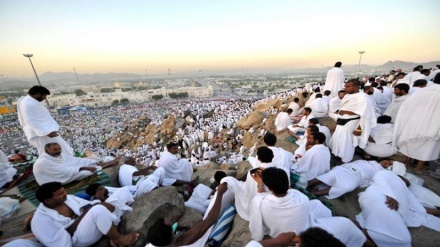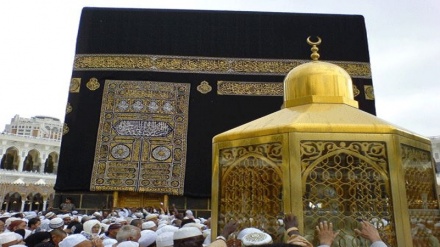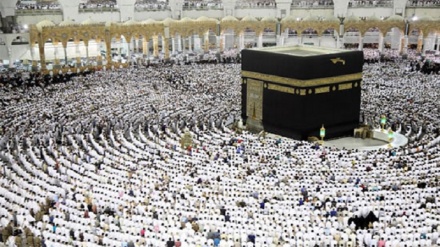The Abrahamic Hajj (4)
Welcome to the 4th episode of “The Abrahamic Hajj”, as we near the climax of the annual pilgrimage to the Sacred Ka’ba, the Symbolic House of God Almighty.
In ayahs 27, 28 and 29 of Surah Hajj, God Almighty, after having commanded Prophet Abraham and his firstborn son, Prophet Ishmael (peace upon them), to rebuild the Sacred which was lying in ruins ever since the great deluge of the days of Prophet Noah (peace upon him), told the Iconoclast Patriarch to issue a public call in the wilderness of the then Mecca for performance of the Hajj pilgrimage.
"And proclaim the Hajj to the people: they shall come to you on foot and on lean camels coming from distant places,"
“That they may witness the benefits for them, and mention Allah’s Name during the known days over the livestock He has provided them. So eat thereof, and feed the destitute.
"Then let them do away with their untidiness, and fulfill their vows, and go around the Ancient House."
Literally, Hajj refers to the intention of visiting a place. The Holy Qur'an transfers the meaning of Hajj from its general lexical meaning to a specific meaning which denotes the annual pilgrimage to the Holy Ka'ba in Mecca, as one of the religious duties of Islam. The great annual gathering called Hajj, is a collection of rites and ceremonies, performed by Muslims in a specific place and during a specific time set by Islam.
The Hajj begins with the donning of the Ihram or the pilgrim's white seamless garb at a place called Miqaat. And when the pilgrim enters Masjid al-Haraam or the Sacred House that enclosed the Ka’a, he/she performs the Tawaf or the 7-round circumambulation of the symbolic House of God. Then the Sa'iy or walking briskly seven times between the hillocks of Safa and Marwah is done, in memory of the quest for water of Hajar for the thirsty Ishmael for whom God made the spring of Zamzam gush from the depths of the earth.
In ayah 158 of Surah Baqara, God says:
"Indeed Safa and Marwah are among Allah’s sacraments. So whoever makes Hajj to the House, or performs the Umrah, there is no sin upon him to circuit between them."
Then follows the Wuquf or remaining in certain places during Hajj, such as the plain of Arafa on the 9th of Zilhijja till sunset, the nightlong stay at Muzdalefa or Mash’ar al-Haraam, where the pilgrim gathers pebbles for the Rami al-Jamaraat or stoning of the symbolic satans at Mena. This act commemorates the spurning of Iblis or Lucifer, who appeared three times in Mena in a vain bid to dissuade Abraham, his wife Hajar, and his son Ishmael from carrying out God’s commandments. Today, this stoning ritual symbolizes the Muslims rejection of not just satanic temptations, but the mischief of the enemies of humanity.
On the 10th of Zilhijja at Mena the sacrifice of a sheep, or cattle, or a camel, is performed as thanksgiving to God’s miraculous substitution of a ram in place of Ishmael, just as Abraham’s knife was about to slit the throat of his teenage son, as Divine Providence had ordered as a test of faith. The 10th of Zilhijja is also the day of Eid al-Adha. On this day in Mena, the male pilgrims are required to shave their heads.
On the 11th and 12th of Zilhijja, the pilgrims stay in Mena, but make trips to Mecca for performing the Tawaf or the 7-round circumambulation around the Ka’ba, followed by a two-rak’at ritual prayer. Finally, the Tawaf an-Nisa is performed to complete the Hajj pilgrimage.
These rituals grant dignity to Muslims and firmly binds them with the Loving Creator.
AS/ME


